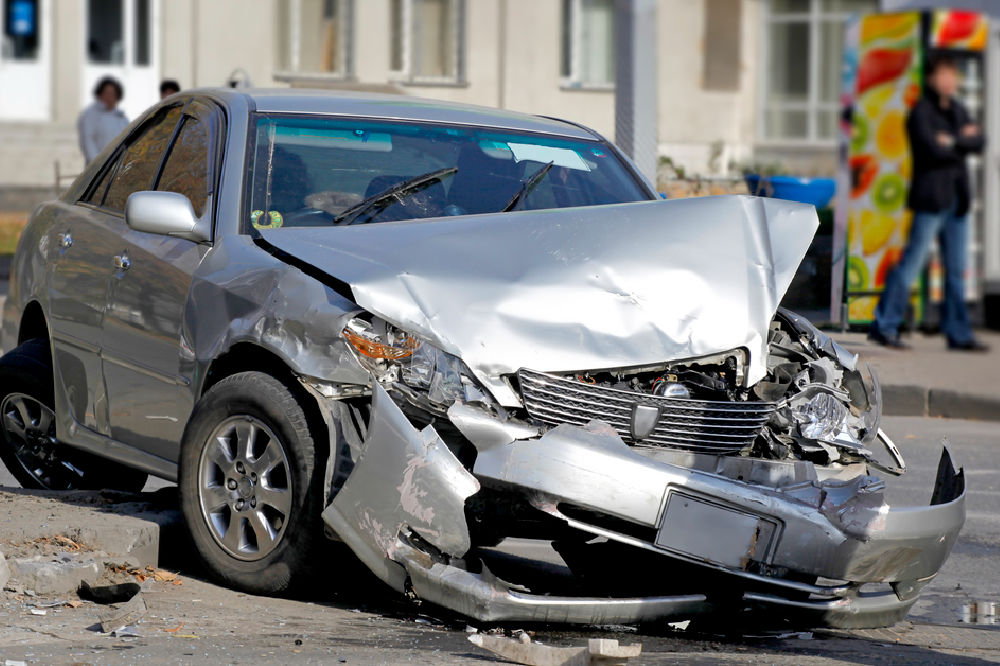It seems fairly obvious that a car is written off if it can’t be repaired safely after an accident. However, like so many things in life, there is more to the decision than meets the eye. Also, not all states have the same standards, which adds another level of complication to the process.
First of all, it’s helpful to know the terminology: if an insurance company determines that a car will cost more to repair than it is worth after a car accident, that car is said to be a total loss. This can also be used as a verb, as in “The car was totaled.” Other common phrases for the same process are written off, or write-off, as in, “The insurance company determined that my car was a write-off.”
How Do I Know If My Car is a Total Loss?
The total loss threshold is the point where an insurance company must legally recognize that the car will not be repaired. In two states, Colorado and Texas, this threshold is set at 100%. In other words, if the vehicle will cost more to repair than its actual cash value (ACV), the insurance company will declare it to be totaled.
In 22 states, insurers use total loss formulas (TLF) to determine whether or not a car is a total loss after an accident. It is possible for insurers to have different formulas within the state, so the decision may vary depending on whether the car owner uses Geico, Progressive, State Farm, or Nationwide, for instance.
The remaining states each have their own thresholds. For example, Florida, Missouri, and Oregon have set their threshold at 80%. Michigan, Kentucky, and 14 other states have 75% thresholds. (Just in case you were wondering, Iowa is the state with the lowest threshold: 50%.)
Indiana
So, how do I know if my car is a total loss? Indiana is one of four states with a total loss threshold of 70%. What this means is that if it will cost more than 70% of your vehicle’s actual cash value (ACV) to repair it, the state of Indiana will consider the vehicle to be a total loss. And because Indiana is an at-fault state, the at-fault driver’s insurance company will need to reimburse you for the vehicle.
This raises another question: How do insurance companies determine the ACV of your vehicle?
Sadly, you will not be reimbursed for the cost of your car when it was new. Even if you have only owned it for a short time, it will have depreciated in value. According to CarFax figures cited in Forbes Magazine, “cars can lose over 10% of their value during the first few months of ownership and over 20% in the first 12 months.”
Several factors will be considered in calculating your car’s ACV:
- Make, model, and year of the car
- Amount of mileage on the car
- Condition of the car (just before the collision)
- Optional features or add-ons on your car
- Your car’s accident history
If you have ever considered buying or selling a used vehicle, you may be familiar with the Kelley Blue Book or the National Automobile Dealers Association. Insurance carriers use third-party vendors like these to determine the cost of totaled cars.
What if you disagree with your settlement offer?
Insurance companies are always looking at their bottom line. They may offer what you consider to be a lowball amount for your vehicle. You are allowed to refuse the offer if you don’t believe that it reflects fair market value, but that doesn’t mean that they will automatically come back with a better offer.
You will have to prove a market value higher than the amount that the insurance company is offering:
- Get written estimates from a few car dealers in your area.
- Get an independent appraisal from a professional appraiser (you will have to pay for this).
- Examine the Kelley Blue Book yourself.
- Submit a counteroffer with all of the documentation you have collected.
- If you are unsuccessful and feel that you are being treated unfairly, file a complaint with the Indiana Department of Insurance.
- Contact the Indianapolis car accident attorneys at Crossen Law Firm to represent you in your dealings with the insurance company. We know that many insurance companies try to delay endlessly in hopes that you will be so inconvenienced without the use of a car that you will give up the fight and accept an unfair offer simply to put an end to the process.
- If necessary, Crossen Law Firm will file a lawsuit against the unscrupulous insurance company of the at-fault driver.
At Crossen Law Firm, we have the skills and knowledge necessary to effectively negotiate with insurance companies to obtain maximum compensation. We can help you answer the questions such as, “What is total loss in a car accident?” Our experts are ready to work with you to get you the full reimbursement for your car so you can get back on the road.Call us at 317-401-8626 for a free consultation. Or contact us online.

 317-401-8626
317-401-8626 
.jpg)